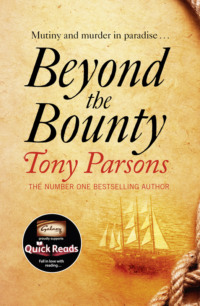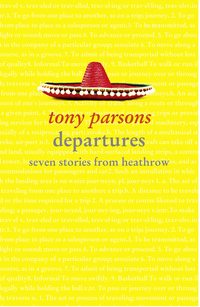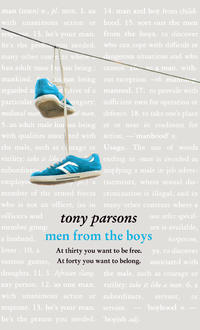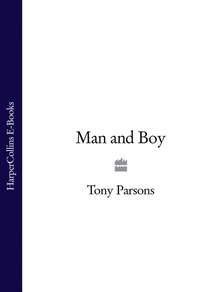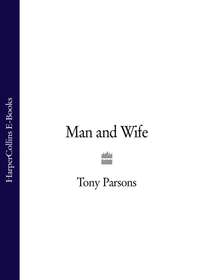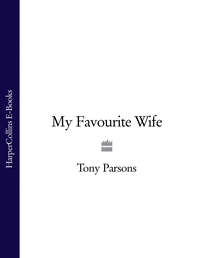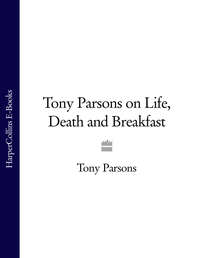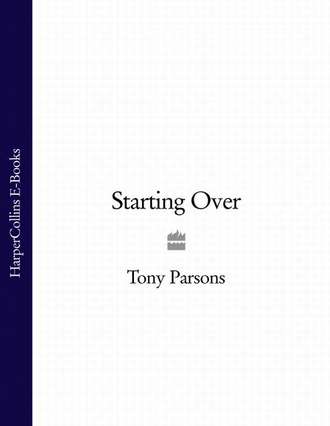
Полная версия
Starting Over
And she looked at me.
‘Not you, Dad,’ she said. ‘The planet.’
When the house was finally empty I went into the living room to retrieve the pack of cigarettes that I had hidden.
I was grinning like a maniac, all pleased with myself, because I was finally about to get the hit I was craving, and because the pack was secreted in such a good place – behind the coals of the fake fire that we had at the bottom of our chimney. Nobody would ever look back there.
My smile didn’t fade until I stuck my hand behind the coals, felt around the gas pipe and fished out my fags, seeing the tiny holes that someone had drilled through the pack, destroying what was inside.
Whoever had done it hadn’t bothered to take out the cigarettes. They had just pushed a pin, or whatever it was, into every corner of the packet, the way a magician shoves swords into his magic box, in a careful, all-encompassing frenzy.
Because they didn’t want me to die.
I took out one useless cigarette and examined it. It sagged as if in submission, lovely golden tobacco spilling out of its pierced white paper. I tossed the pack in the rubbish bin and went upstairs, wondering who cared that much.
The floor of Ruby’s bedroom was scattered with clothes, schoolbooks, and random bits of technology. Tiny headphones. A battery charger. An electric toothbrush, still vibrating. I picked it up, turned it off and placed it on her desk. The movement jolted her computer to life, and a screen-saver appeared of our blue planet seen from space.
You could still glimpse the earlier stages of her childhood on the walls. Scraps of posters of grinning actors and long-disbanded boy bands were just visible beyond the more recent additions of the planet in flames, or alternatively, in deep-freeze. BECOME PART OF THE SOLUTION, one of them urged. I stared at the slogan for quite a while.
Then I had a little look in her desk, and there was more archaeological digging to be done in there. Did she keep her High School Musical ruler and her Barbie pencil sharpener for nostalgic reasons, or just because she couldn’t be bothered to throw them out? I had a good rummage around but there was nothing that could obviously be used to destroy her dear old dad’s emergency fags.
So I thought it was probably my wife.
A pin, I thought. A brooch. Something sharp. She kept her jewellery in the bedside table on her side of the bed. There was not much. Just a blue Tiffany box with the bits and pieces that I had bought her over the years. A gold charm bracelet with two lonely heart-shaped charms, one that said IT’S A BOY and the other that said IT’S A GIRL. And there was a string of pearls with a broken clasp. And a silver heart on a chain. So nothing in there.
But there was another box of jewels that had belonged to her mother. I didn’t feel good about looking in there, but I looked anyway, suspecting that the deed could have been done with the pin on one of those old-fashioned brooches that women used to wear.
It was a red plastic box with this sort of carpet material on top, in the design of some roses. Even I could see it was corny.
The lid was half-broken, and inside were indeed lots of old-fashioned brooches. There was one in the shape of a butterfly, another made out of some greyish metal, pewter maybe, with a picture of a deer looking over its shoulder, and another featuring a gold model of Concorde. This last one had a long sharp pin, but somehow I knew that Lara wouldn’t use her mother’s jewellery to destroy my cigarettes. There were also three rings. An engagement ring with the tiniest diamond I had ever seen. A plain gold wedding band. And what they used to call an eternity ring.
I closed the box, taking care with the damaged lid, and I put it back where I had found it, feeling the eyes of my wife’s dead parents on me. And then I went to my son’s room.
It didn’t look like a teenager’s room. It looked like the room of a forty-nine-year-old accountant. Nothing on the floor. A neat stack of schoolwork on his desk. His computer turned off. Tomorrow’s white shirt waiting on a wire hanger on the handle of the wardrobe. Bed made with military precision. A small bookcase with neat rows of paperbacks. I pulled one out and flicked through it. A phrase leapt out at me, stopped me in my tracks. The ragged and ecstatic joy of pure being. I looked at the cover. Blue skies. A fifties car. Two men, smiling, their faces half in shadow. On the Road by Jack Kerouac. I put it back, noticing the Swiss army knife sitting on top of the books. I began pulling it open.
It had a tiny screwdriver and assorted thin blades and sharp points that could be used for removing a stone from a horse’s hoof, or for destroying someone’s emergency cigarettes.
He really loved me.
The little bastard.
Then I saw the hat. It was hanging on the back of the door, with the leather jacket that Rufus wore when he wasn’t wearing his school blazer. It was a woollen hat, but with a little rim at the front, so it looked like the kind of hat that a jockey would wear. Except it was made of wool, so it wouldn’t be much good if you fell off a horse.
I put it on and looked at myself in the mirror.
I looked pretty good.
Raffish. Devil-may-care. And younger. It definitely made me look youngish. Young.
The rest of my clothes didn’t really match the jockey’s hat. My baggy polo shirt. My dead man’s chinos. Socks the colour of pewter. They were shown up by the hat. They were humiliated by the hat. They looked old and tired. Over and done. Ready to be chucked out. I was going to have to do something about my wardrobe.
Then I heard a key in the front door and I quickly headed for the stairs, smiling innocently as Lara came in. I helped her carry the shopping bags into the kitchen. She hugged me and kissed me and made me a cup of tea.
‘Why are you wearing that ridiculous hat?’ she said. When we had finished our tea she took me out for a very gentle walk in the park. As if I were a toddler, or a dog.
Or as if I might break.
In my dream I was sleeping by the side of a woman who was wanted by a million men. This phenomenal woman, this fabulous creature, this prize.
And when I awoke it was true.
‘George,’ Lara said. ‘No, George.’
But I would not be denied. She knew that look. Even in the darkness of the early hours, with only a drop of moonlight creeping around the curtains, she recognised that look in my eyes.
Cunning, amused, slightly bashful.
The look of love.
I edged across to her side of the bed and took her in my arms. I kissed her on the mouth. I knew that mouth and I had missed it. I had missed all that side of things, I realised. Our mouths did not want to let go. They fit well. Somewhere Lara’s mother radar searched for the sound of our children.
But Rufus was out and Ruby was sleeping.
‘George, George,’ she said, offering one last chance of a cooling-off period. ‘Are you sure that we should be doing this?’
I was sure.
Then she didn’t say anything else, not even my name, and we loved for the first time in months. And that would have been fine, that would have been great, that would have been enough, but then later we woke, or at least came halfway out of sleep long enough for another slower, easier, less desperate meeting.
And then – somebody pinch me – yet again when it was just before morning and the room was still full of night, and now the urgency of the first time was back again – and I mean both the first time that night and the first time ever. And it was the way it is at the very beginning, when you just can’t get enough of each other, when you can’t believe your luck, and the night goes by in a blissful blur of heat and exhausted sleep and gathering light.
I was sleeping on her side of the bed when she got up and went to the bathroom. I could hear the birds and see the white edge of dawn around the windows. I needed to sleep now, I really needed to sleep. I was worn to a frazzle. But I opened one eye when Lara came back and turned on the bedside lamp. ‘What?’ I said.
She touched my face. ‘Just checking.’ She smiled.
I rolled over to my side of the bed and closed my eyes.
‘Checking what?’ I said into the pillow.
That made her laugh.
‘Checking it’s you,’ she said.
six
A few people stared at us as we walked into the Autumn Grove Care Home. An old lady in a chair who had just been taken for a Sunday afternoon wheel around the park. Her middle-aged son and his two teenage children. A porter I didn’t recognise.
Then the woman on reception smiled and said hello, and they all looked away. But we got that all the time. My wife and I were one of those couples that people take a second look at, without ever really knowing why. But I knew why.
It was because we didn’t seem to fit.
Lara was so small and pretty, and she still had that dancer’s grace, that ease in her own body. Whereas I was so big and lumbering and, well, not exactly ugly, but my nose has been broken twice – once by a Friday-night drunk who threw a traffic bollard in my face, and the other time while we were rolling around on the pavement as I arrested him. It gave my face a bent, damaged look, as though there were a lot of miles on my clock and I was likely to fail my MOT. Actually, now I think about it, ugly is exactly the word.
But Lara had retained some indefinable air from her dancing days. People once paid money to see this woman perform, to see her dance, to see her shine. She would be forty years old on her next birthday, and she was a working mother with two teenage children, but she still had that showbiz glamour. Whereas I was stolid. I wasn’t like the other men she had known. I wasn’t like the one she went out with before me. Her previous boyfriend. I wasn’t a dashing young suitor racing back from Stratford after playing the Prince to rave reviews. I was from a different West End – chasing after glue sniffers and bag snatchers and mouthy drunks waving around traffic bollards so that PC Keith Rooney could give them a slap and tell them to stop being naughty. I was a big, uncomplicated man with a broken hooter who had no fear of the physical world. And that was what she liked about me. That meat-and-potatoes dependability – something that might have put off other girls. Women, I mean. She knew I would never stop loving her. She knew that it wouldn’t even occur to me, that I would always be sort of grateful, because she was so clearly out of my league. Men, especially, looked at us. And the look they gave said, Wow, if the bar is set so low… And then I would stare at them and they would turn away. Because they noticed something about me. It wasn’t a cop thing. It wasn’t my size. It wasn’t even the fact that I tried to carry myself like my father. They sensed they were stepping on sacred ground. Because she was everything to me. And so they took a step back.
It might have been different if her parents hadn’t died in a car crash when she was twelve years old. They were on their way to pick her up from the airport after a school ski trip – seven days of laughter falling over on some French mountain – on a road slick with rain, ploughing into the back of a lorry stopped in the fast lane with a flat tyre.
If they had lived…
But they didn’t.
And you never really appreciate the other side of glamour, the quiet comforts of home and family, until life has taken them all away from you.
‘Have you got my book?’ Lara’s grandmother said, as I helped her from her bed to her chair. When she said book she meant magazine, and by that she meant her favourite TV listings supplement.
‘Right here, Nan,’ Lara said, and she placed it on her lap, already opened at today’s page, with her selected TV programmes circled in red, like fences around her loneliness. Lara sat on the bed and smiled. ‘Anything good on this afternoon?’
‘An American in Paris,’ Nan said, her watery blue eyes gleaming behind her glasses.
Lara was interested. She wasn’t just being polite. ‘Gene Kelly and – who?’ she said.
‘Leslie Caron,’ said Nan, smoothing the TV listings page with her hands. ‘And music by Gershwin.’ She nodded emphatically. ‘I like him, Gershwin,’ she said, as if George Gershwin was a promising newcomer and her tip for the top.
Lara and Nan smiled at each other, their mouths almost watering at the thought of An American in Paris. It still mattered to my wife, the dancing. It never went away. The dancing never goes away. It had always been more than her livelihood. After she lost her first family, and before she got her second family, the dancing was her life. And she got that from Nan. She hadn’t just taken the young Lara to lessons
59 and auditions, the way her mother had. Nan had shown Lara that you could get lost in it – just lose yourself in the dancing, if that was what you wanted, or needed. And for years, that was exactly what she needed.
Twice a week she went to see Nan in the Autumn Grove. Usually not with me. She felt it should have been more often. I watched Lara settling the old lady in front of the TV, getting her a drink, holding the glass as she took a tiny, sparrow-like sip, and I saw how much my wife loved her. It wasn’t just the normal love that you feel for a grandmother. Nan had done so much. She was one of those special grandparents who brings up two generations. Nan had not brought Lara up all the way, but as much as anyone. As much as her parents, she always said.
What happened to Lara’s mother and father is surprisingly common. I have met a few people who lost both their parents in a car crash. Married couples travel in cars together all the time, and sometimes they die together. So it wasn’t just Lara. Although for many years I think it felt as though it was just her. Still does, on her bad days. She once said to me, dry-eyed and thoughtful, I don’t know what would have happened to me without my nan. She took me in. She loved me. She helped me on my way. She stopped me falling through the cracks.
Nan loved MGM musicals. Fred and Ginger putting on the Ritz. Gene Kelly and Debbie Reynolds sparring. And when Lara went to live with her nan, it was the early eighties, the age of video rental. For the first time ever, you could watch Singin’ in the Rain or West Side Story or Oklahoma! whenever you felt like it.
And Nan and little Lara felt like it most of the time.
They loved Gene, Ginger, Fred, Debbie and the rest, but they loved Cyd Charisse above all. They loved her dancing with Gene Kelly in the great Broadway dream sequence in Singin’ in the Rain – Kelly on his knees before Cyd the gangsters’ moll in her green dress – and they loved Cyd with Fred Astaire in Bandwagon, dancing in a seedy, smoky bar, doing the kind of dancing that starts fights.
Although she had done her childish ballet and tap, that was where the dancing really began for her, those wet Sunday afternoons watching MGM musicals with Nan. Those other Sundays, long ago, where the colours seemed brighter than real life. Better than real life. And as I watched Lara and her nan watching their film, I wondered if anything had changed. It felt to me as if the dancing still measured out her dreams.
‘One day I will dance the tango in Buenos Aires,’ she said, sitting on the arm of Nan’s chair, one arm lightly draped across the old lady’s thin shoulders, neither of them taking their eyes from Gene Kelly. ‘You can take lessons when you get down there. To BA, I mean. They call it BA. I looked it up on the Internet.’ She laughed, and glanced over at me. ‘That’s the final frontier for an MGM musical nut,’ she said. ‘Dancing the tango with your husband in some little milonga dance hall in Argentina, with the music and the crowd and the sweat, and all the colours better than the real world.’
Might be a bit tricky, I thought. I put on my dancing shoes during our courting days, but these days Lara had her work cut out getting me to dance at weddings.
When Lara went to place the order for Nan’s dinner, the old lady gestured for me to come closer. I thought she was going to tell me something about George Gershwin or Gene Kelly. But instead she hissed a warning in my ear.
‘Don’t get old,’ she told me.
My parents wore matching kit at their self-defence class. They were a couple of trim seventy-somethings in their Adidas tracksuits, red for her and black for him, their uniforms as shiny as an oil slick. Accompanied by around a dozen other pensioners, mostly women, they shuffled across the floor of the gym on the instructions of their trainer, their kindly faces frowning with feigned violence.
‘Dogs don’t know Kung Fu,’ the instructor told them. ‘Dogs don’t know Karate or Tae Kwon Do or boxing. Yet every dog can protect itself.’
The class smiled benignly at him. Their footwear was as white as their hair. It looked box fresh. It looked as though it would never get old. The instructor clenched his fists and his teeth.
‘What did he say, dear?’ one old lady asked my mother.
‘He said, “Dogs don’t know Kung Fu”, dear,’ said my mum, and she gave me a delighted smile. She was happy to see me. I didn’t see them enough. I was always too busy.
‘Dealing with the frontal bear hug,’ the instructor said, motioning my father to step forward, ‘you are gripped around the arms and the waist.’ He proceeded to embrace my father in a way that I had never embraced him. Perhaps my mum had never embraced him like that either.
‘First – knee your opponent in the testicles,’ said the instructor.
‘What’s that?’ said the old lady.
‘Testicles, dear,’ my mum said. ‘Knee your opponent in the testicles, dear.’
My dad gamely lifted his foot a few inches off the floor as he mimed crushing the instructor’s testicles.
‘Next,’ the instructor said, ‘with the inner edge of your shoe scrape his shin-bone from just below the knee to the ankle.’
My father traced the assault in slow motion.
‘Then – stamp on his foot,’ said the instructor, and – playing to the gallery, as always – my dad pretended to bring his heel down on the instructor’s foot.
The pensioners all chuckled. There was some mild applause. My mother beamed with amusement and pride. My dad looked very pleased with himself.
‘If he still hasn’t got the message,’ the instructor said, giving a little jerk of his head, ‘then smash your forehead as hard as you can against the bridge of his nose. And goodnight, Vienna. Okay, let’s try that in our pairs.’
I sat on a bench and watched my parents and their friends, marvelling at their vitality and bravery, but most of all stunned at their heartbreaking innocence and trust in the world.
How could they feel so certain of being attacked by just one person?
At the end of the class they came over to me. My mum kissed me and oohed and aahed over some recent pictures of the kids taken at home after I got out of the hospital, and she said she couldn’t believe how Rufus was turning into such a handsome young man and that Ruby, little Ruby, was practically a young lady already.
And my mum looked very hopeful when I said that we must have them round for Sunday lunch soon. But my dad saw right through me. My father, the retired policeman, always saw straight through me. He waited until my mum had gone off to the changing rooms.
‘Still not back at work, then?’ he said.
Sometimes I was down.
It was less a swing of mood – the heart doctor had told me to expect those – than a change of perception. I suddenly got it. The fragility of all things. Especially me. And our boiler. I could hear it spluttering its guts out in the bathroom. It will need a plumber soon, I thought with a sigh that was silent and endless, and I wondered exactly when my life had shrunk to a list of domestic chores.
‘Do you want to talk about it?’ Lara said, putting her arm around me.
But I didn’t know where to start, or where to end, or what the middle should look like.
‘I might be up for a while,’ I said, and she took her arm away, and nodded, and soon I could hear her moving around in our bedroom. And then after a while I heard nothing, apart from the midnight hum of the fridge and the coughing and spluttering of the boiler on the blink.
The bottle of red wine was half gone by the time Rufus came home. He looked in a bad way. And he reeked of beer. Like something the cat had dragged in and washed in Special Brew. He looked at the AlcoHawk Pro sitting on the coffee table.
‘Don’t worry about that,’ I said, suddenly seeing it for the ludicrous bit of plastic it was. ‘I think we can skip that tonight.’
‘I don’t mind,’ he said, and he bent his ungainly frame to pick it up. He looked at the shiny grey device in his hand. And then he looked at me. ‘I didn’t drink anything,’ he said.
I smiled. ‘Right,’ I said. It was so blatantly untrue that I had to admire his front. ‘Just try to get some in your mouth next time.’
Then there was that sudden flare of outrage, the easy outrage that is the natural habitat of the teenage boy. ‘You don’t believe anything I say, do you?’ he said.
‘Volume lower,’ I said. ‘Your mother and sister are sleeping.’
‘Not a word of it,’ he said, shaking his head at the AlcoHawk. ‘Not a bloody word.’
I sighed. ‘But, Rufus,’ I said, shaking my head with wonder at his ability to stand there stinking like a brewery and lie to my face, ‘I can smell it.’
‘But I didn’t drink it,’ he said. ‘They threw it. They chucked beer at me, Dad.’
He had lost me. ‘They did what? Who are you talking about? Who are they?’
‘It doesn’t matter,’ he said, although I could tell it mattered more than anything.
And I looked at my son, this great gawky monster, this thin-skinned stranger, and I willed myself to see the mophaired boy he had once been, the boy I could hug and who would hug me back, and who would not pull away.
‘What happened to us, Rufus? We were mates, weren’t we? Do you remember when you were little? We went to the park. We went to the football. We went to Legoland. Remember Legoland?’
‘Legoland? Yeah, I was carsick. Puked all the way to Windsor.’
‘But you enjoyed yourself once you were there. Remember? Once we had cleaned you up a bit. What happened?’
He snorted, looked away. ‘Yeah, well. I grew up.’
Was that it? Was that all it was? Really? The gap that opens up between the father and the son as the years go by? Was it really only natural? I couldn’t believe it. I felt that somewhere along the line I had taken a wrong turn, and that’s why I had lost him.
‘It’s not easy,’ he said. ‘Having a copper for a father. Somebody everyone seems to know. Always getting compared. Always getting measured. Being your father’s son and nothing more. Always seen that way.’ He smiled bitterly. ‘Living in your famous shadow.’
I shook my head. ‘I’m not famous,’ I said. ‘Bill Gates is famous. Brad Pitt is famous. The Dalai Lama…You should be grateful the Dalai Lama is not your father. I’m not famous.’
‘Oh, but you are,’ he said. ‘On a local level. Everyone round here knows who you are. Or who you were, before you got ill. You’re famous in that modern, micro-celebrity sort of way.’
‘You’re too kind.’ I poured myself a large measure of red. Then suddenly there was concern on his face.
‘What’s wrong?’ he said.
‘Nothing,’ I said. ‘A bit of a rotten night. Probably the drugs. They tend to swing your moods around. Don’t worry. Just a lousy night. Like you. Or did you think that you invented lousy nights?’
He still had the AlcoHawk Pro in his hand. I indicated what was left of the red wine.
‘You want a drop of this? They told me not to drink. But I’m really tired of being told what to do. You ever feel like that?’
Rufus shook his head. ‘I don’t drink, Dad. It’s not my thing.’
He put down the AlcoHawk Pro. I looked at him for a long time.




